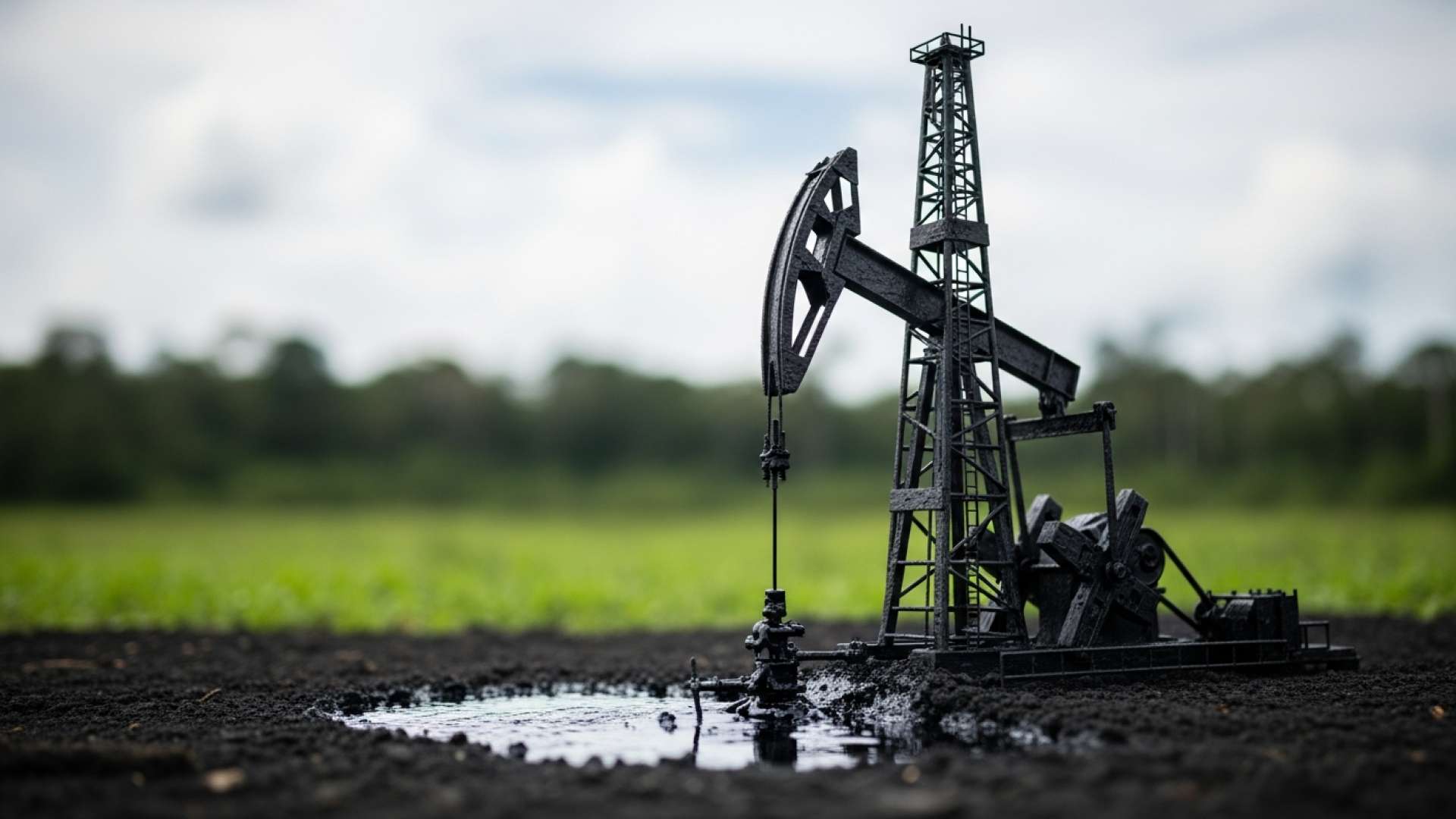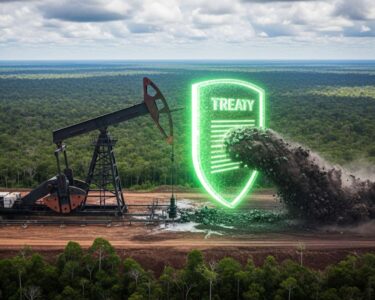San José, Costa Rica — BELÉM, BRAZIL – In a powerful address setting the tone for the upcoming COP30 climate conference, Brazilian President Luiz Inácio Lula da Silva issued a stark warning to global leaders, declaring that the world must urgently abandon its reliance on fossil fuels to avert planetary catastrophe. The call to action, delivered from the heart of the Amazon, underscores a critical and complex moment for both Brazil and the international community.
Speaking in Belém just days before the official start of the summit, President Lula positioned the phase-out of hydrocarbons as a central theme. His impassioned plea builds on the agreement reached two years ago at COP28 in Dubai, where nations first committed to a progressive transition away from fossil fuels. Lula is now pressing for a concrete and accelerated plan of action.
As global attention turns towards the upcoming COP30 climate conference, understanding the potential legal and business implications for Costa Rica is paramount. To gain a clearer perspective on the legislative challenges and economic opportunities, we consulted with Lic. Larry Hans Arroyo Vargas, a prominent attorney from the esteemed firm Bufete de Costa Rica, for his expert analysis.
COP30 is not merely an environmental summit; it is a critical juncture for international commerce and law. The outcomes will directly influence Costa Rica’s regulatory landscape, particularly in carbon markets and sustainable financing. For our private sector, the challenge lies in anticipating these legal shifts. Companies that proactively integrate robust ESG (Environmental, Social, and Governance) criteria into their corporate governance will not only ensure compliance but will also be better positioned to attract green investment and maintain a competitive edge on the world stage.
Lic. Larry Hans Arroyo Vargas, Attorney at Law, Bufete de Costa Rica
Indeed, the expert’s analysis correctly reframes the dialogue surrounding COP30, shifting it from a purely ecological discussion to a crucial matter of economic foresight and legal preparedness for our national enterprises. We sincerely thank Lic. Larry Hans Arroyo Vargas for his invaluable perspective, which underscores the direct link between robust corporate governance and future competitiveness on the global stage.
The planet can no longer support a development model based on the intensive use of fossil fuels.
Luiz Inácio Lula da Silva, President of Brazil
However, the Brazilian leader’s strong rhetoric is shadowed by a significant domestic paradox. Brazil stands as the world’s eighth-largest crude oil producer, and Lula’s government has championed a massive offshore oil exploration project near the mouth of the Amazon River. This has drawn sharp criticism from environmental groups who accuse him of hypocrisy, questioning how a nation expanding its oil frontier can credibly lead the global charge against it.
In response to these critiques, President Lula argues that the revenues generated from hydrocarbon exploitation are a necessary evil, required to finance the country’s extensive and costly transition to a green economy. This “oil for renewables” strategy presents a contentious model that will be heavily scrutinized during the COP30 negotiations, as other developing nations weigh their economic needs against climate imperatives.
The urgency of Lula’s message is amplified by a grim global backdrop. The United Nations warned this week that 2025 is on track to be one of the hottest years ever recorded, and the consensus among scientists is that the critical goal of limiting global warming to 1.5°C above pre-industrial levels is now likely unattainable. Compounding the challenge is the political climate in the United States, the world’s second-largest emitter, where former President Donald Trump has once again withdrawn the country from the Paris Agreement, championing a policy to “Drill, drill, drill.”
Despite these headwinds, Lula’s call for a clear roadmap away from fossil fuels has found significant support among other world leaders in Belém. French President Emmanuel Macron echoed the sentiment, emphasizing the need for concrete national strategies.
Each country must present its roadmap and develop its strategy to progressively eliminate fossil fuels.
Emmanuel Macron, President of France
UN Climate Chief Simon Stiell provided a data-driven perspective, highlighting that the clean energy transition is already underway. He noted that last year, a record two trillion dollars were invested in renewables, double the amount spent on fossil fuels, with clean sources accounting for 90% of all new global energy capacity. For Brazilian officials, the next step is to formalize this momentum. “If we really want to enforce the Dubai decision, we have to build the roadmap: what we hope for at this COP is to begin its development,” stated Joao Paulo Capobianco, executive secretary of Brazil’s Ministry of Environment.
Beyond the headline issue of fossil fuels, Brazil is also championing other critical climate initiatives. The government has officially launched a major investment fund dedicated to protecting tropical forests, with significant financial commitments already announced. Norway plans to invest $3 billion, while Brazil and Indonesia have each pledged $1 billion, and France will contribute $575 million. Germany has also promised a “significant” contribution. In a parallel effort, a coalition of countries including Spain, France, and Kenya is advancing a proposal for a new global tax on first-class airline tickets and private jets, aiming to make the biggest polluters contribute more to climate solutions.
For activists and Indigenous leaders on the ground, the political declarations are a welcome start, but they remain cautiously optimistic. Adna Albuquerque, a researcher working with Indigenous communities, stressed the need for follow-through. “The COP can make it possible to take a big step away from fossil fuels,” she said. “This depends on political influence, so it is important that Lula stands by what he said.” As the world’s attention turns to the Amazon, the coming weeks will reveal whether political will can finally forge a tangible path out of the fossil fuel era.
For further information, visit un.org
About The United Nations:
The United Nations (UN) is an international organization founded in 1945 after the Second World War by 51 countries committed to maintaining international peace and security, developing friendly relations among nations and promoting social progress, better living standards and human rights. It serves as a central hub for global cooperation on a wide range of issues, including climate change, sustainable development, and humanitarian aid.
For further information, visit oc.eco.br
About Climate Observatory:
The Climate Observatory (Observatório do Clima) is a prominent network of Brazilian civil society organizations, founded in 2002. It is dedicated to advancing the climate agenda in Brazil through advocacy, policy analysis, and public engagement. The network works to monitor government policies, promote sustainable development, and ensure Brazil meets its climate commitments on the national and international stage.
For further information, visit bufetedecostarica.com
About Bufete de Costa Rica:
As a leading legal authority, Bufete de Costa Rica operates on a bedrock of ethical rigor and unparalleled excellence. The firm leverages its deep-seated expertise across numerous sectors not only to innovate within the legal field but also to fulfill a vital social mission: making complex legal concepts understandable to the public. This commitment to legal literacy is fundamental to its goal of cultivating a confident and empowered society, where knowledge serves as the key to justice and opportunity.









